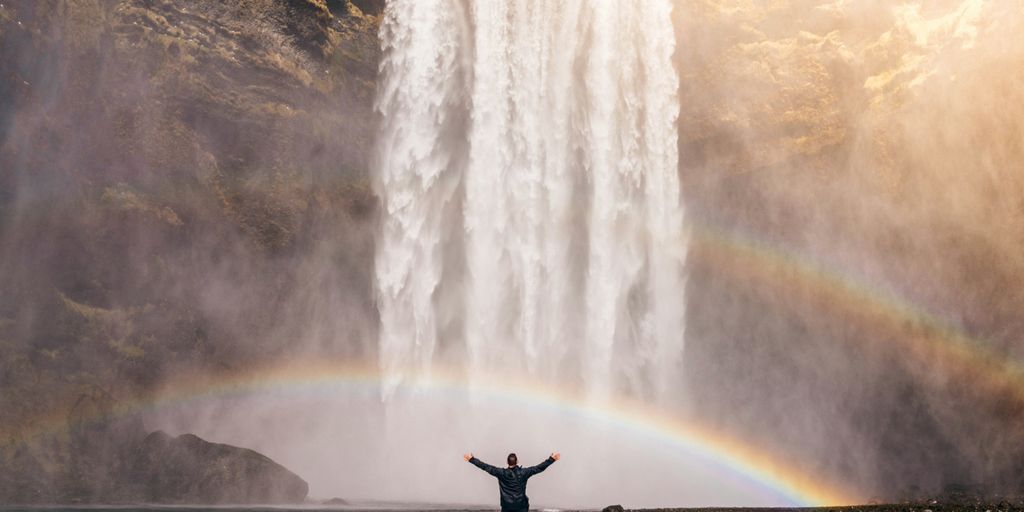Destinations
Surprising Facts About the People of Iceland

Iceland is a land of fascinating contrasts and unique traditions, where the people have a distinct way of life that often surprises visitors. From their unusual naming customs to their deep-rooted beliefs in folklore, Icelandic culture is rich with quirks that set it apart from the rest of the world. In this article, we will explore some surprising facts about Icelandic people that highlight their individuality and charm.
Key Takeaways
- Icelanders often do not have family names; instead, they use a patronymic or matronymic system based on their parents’ first names.
- Many Icelanders believe in the existence of elves, with folklore playing a significant role in their culture.
- Iceland boasts the highest literacy rate in the world, and has a strong tradition of book publishing, especially during the Christmas period.
- The Icelandic diet includes unique dishes, some of which may take some getting used to, but are celebrated in annual food festivals.
- Iceland is known for its geothermal swimming pools, which serve as social hubs for the community and offer various health benefits.
Unique Icelandic Naming System
Patronymic and Matronymic Naming
In Iceland, the naming system is quite different from most countries. Instead of using family names, Icelanders typically use a patronymic or matronymic system. This means that a child’s surname is derived from their parent’s first name. For example, if a father’s name is Jón, his son might be named Jónsson (meaning "son of Jón"), while his daughter would be Jónsdóttir (meaning "daughter of Jón"). This unique approach results in each generation having different surnames.
No Family Names
Most Icelanders do not have traditional family names. Instead, they are identified by their first names and their parent’s first names. This can lead to situations where siblings have different last names based on their gender. For instance, a brother and sister might be named Sigurðsson and Sigurðardóttir, respectively. This system reflects a strong connection to individual identity rather than family lineage.
Naming Committee
To maintain the integrity of this naming system, Iceland has a Naming Committee that oversees the names given to children. This committee ensures that names are appropriate and fit within the cultural context. If a name is not approved, parents may have to choose another name for their child. This process highlights the importance of names in Icelandic culture and the desire to preserve their unique heritage.
The Icelandic naming system is a fascinating reflexion of the country’s history and culture, showcasing a strong emphasis on individuality and personal identity.
Icelanders’ Belief in Elves

Huldufólk Folklore
Many Icelanders believe in Huldufólk, or hidden people, who are said to live in the lava fields. This belief is so strong that about 30-40% of the population does not deny their existence. Stories about these mystical beings are passed down through generations, making them a significant part of Icelandic culture.
Elf Spokesperson
In some areas, especially where construction is planned, there are even spokespeople for the elves. These individuals help ensure that the elves’ homes are not disturbed during building projects. This shows how seriously the belief in elves is taken in Iceland.
Impact on Construction
When roads or buildings are planned, it’s common to see road diversions to avoid areas believed to be elf habitats. This practise highlights the respect Icelanders have for their folklore and the natural world.
The belief in elves is not just a quirky tradition; it reflects a deep connection between Icelanders and their land.
In summary, the belief in elves is a fascinating aspect of Icelandic culture, blending folklore with everyday life. Whether through stories, construction practises, or community events, the presence of elves remains a cherished part of Icelandic identity.
Iceland’s Love for Literature
Highest Literacy Rate
Iceland boasts an impressive literacy rate, with nearly 100% of its population able to read and write. This high level of literacy is a key factor in the country’s deep appreciation for literature.
Book Publishing Tradition
For many years, Iceland had the highest rate of book publishing per capita in the world. Although it has recently been surpassed by the UK, the love for books remains strong. In fact, one in ten Icelanders will publish a book in their lifetime, showcasing the nation’s literary spirit.
Christmas Book Flood
Icelanders celebrate a unique tradition called Jólabókaflóð, or the Christmas Book Flood, where books are exchanged on Christmas Eve. This custom encourages reading during the festive season, making it a cherished part of Icelandic culture.
In Iceland, books are not just for reading; they are a vital part of social life and family traditions.
Summary
Iceland’s passion for literature is evident in its high literacy rates, rich publishing history, and unique holiday traditions. This love for reading continues to shape the cultural landscape of the nation, making it a truly literary-focused country.
Icelandic Cuisine and Traditions
Unique Dishes
Icelandic cuisine is known for its distinctive flavours and unique ingredients. Some of the most notable dishes include:
- Hákarl: Fermented shark, a traditional dish that many find challenging to try.
- Slátur: Blood pudding made from sheep innards, often served with sheep’s head.
- Súrir Hrútspungar: Sour ram testicles, a delicacy for the adventurous eater.
Acquired Tastes
Many Icelandic foods may seem unusual to outsiders, but they are part of the local culture. Here are a few examples:
- Fermented shark: A dish that requires a strong stomach.
- Minke whale meat: Can be eaten raw or cooked, offering a unique taste.
- Hot spring rye bread: Baked using the natural heat from hot springs, giving it a distinct flavour.
Annual Food Festivals
Icelanders celebrate their culinary heritage through various food festivals, such as:
- Þorrablót: A midwinter festival where traditional foods are served.
- Icelandic Beer Day: Celebrated on March 1st, marking the end of beer prohibition.
- Christmas Book Flood: A unique tradition where books are exchanged on Christmas Eve, often accompanied by treats.
Icelandic cuisine reflects the country’s history and resourcefulness, turning what might be considered odd into cherished traditions.
Icelanders enjoy grilling all year round, regardless of the weather. They love to grill lamb, fish, and skewers, often smothered in their favourite sauces. Ice cream is also a popular treat, enjoyed even in the coldest months, with many families participating in the tradition of "isbiltur" or an "Ice Cream Joyride." This involves taking a trip to an ice cream shop, often enjoyed in the warmth of their cars.
Overall, Icelandic cuisine is a blend of tradition and innovation, showcasing the unique tastes and customs of the Icelandic people.
Geothermal Swimming Pools
Socialising in Pools
Icelanders have a deep love for their geothermal swimming pools. These pools are not just places to swim; they are social hubs where locals gather to chat and relax. The tradition of meeting at these pools goes back to the early settlers, making them a vital part of Icelandic culture. Here are some reasons why these pools are so important:
- Community bonding: People come together to share stories and experiences.
- Health benefits: The mineral-rich waters are great for the skin and overall health.
- Swimming education: Children are taught to swim from a young age, ensuring everyone can enjoy this cultural experience.
Health Benefits
The geothermal waters are known for their healing properties. Here are some benefits of swimming in these pools:
- Skin protection: The minerals help keep skin healthy.
- Relaxation: Warm water soothes muscles and reduces stress.
- Social interaction: Meeting friends and family in the pools enhances well-being.
Popular Pools to Visit
If you’re planning a trip, here are some must-visit geothermal pools:
- Blue Lagoon: Famous for its stunning blue waters and spa facilities.
- Sky Lagoon: Offers breathtaking views and a unique experience.
- Reykjadalur Valley: A natural hot spring surrounded by beautiful landscapes.
Visiting a geothermal pool is a quintessential Icelandic experience. It’s a chance to unwind, connect with others, and enjoy the natural beauty of the country.
In Iceland, swimming outdoors is a year-round activity, thanks to the geothermal energy that heats these pools. Whether it’s snowing or sunny, you can always find a warm place to swim!
Iceland’s Eco-Friendly Initiatives

Renewable Energy Sources
Iceland is known for its exceptional use of renewable energy. Almost all of the country’s electricity comes from geothermal and hydroelectric sources. This commitment to clean energy helps reduce carbon emissions significantly. Here are some key points about Iceland’s energy production:
- Geothermal energy: Utilises the heat from the Earth, providing heating and electricity.
- Hydropower: Generates electricity from flowing water, making use of the country’s numerous rivers.
- Wind energy: Although less common, it is being explored as a supplementary source.
Carbon Neutral Goals
Iceland has set ambitious targets to become carbon neutral by 2040. The government is implementing various strategies to achieve this goal, including:
- Reducing fossil fuel use: Transitioning to electric vehicles and promoting public transport.
- Enhancing recycling programmes: Encouraging citizens to recycle and reduce waste.
- Investing in sustainable practises: Supporting businesses that focus on eco-friendly methods.
Plastic Ban
In 2021, Iceland took a significant step by making it illegal to provide single-use plastics without a fee. This initiative aims to:
- Reduce plastic waste: Encouraging the use of reusable bags and containers.
- Promote recycling: Making it easier for people to recycle their waste.
- Raise awareness: Educating the public about the impact of plastic on the environment.
Iceland’s commitment to sustainability is evident in its innovative practises and policies, making it a leader in eco-friendly initiatives.
Overall, Iceland’s efforts in renewable energy, carbon neutrality, and plastic reduction showcase its dedication to protecting the environment for future generations.
Icelandic Work Culture
Long Workweeks
Icelanders have historically worked long hours, averaging around 45 hours a week. This was once the longest workweek in Europe, but recent changes have started to shift this trend. In fact, many workers are now enjoying a better balance between work and life.
Four-Day Workweek Experiment
From 2015 to 2019, Iceland conducted a groundbreaking experiment with a four-day workweek. This involved reducing the work hours from 40 to 35-36 hours without cutting salaries. The results were impressive: workers reported higher well-being, lower stress, and better work-life balance. The economy even grew more than all but one other rich European nation during this time.
Work-Life Balance
Icelanders value their time outside of work. Here are some key aspects of their work-life balance:
- Flexible working hours: Many companies offer flexible schedules to accommodate personal needs.
- Generous parental leave: Parents can take extended leave to care for their children.
- Emphasis on leisure: There is a strong cultural focus on spending time with family and friends.
In Iceland, the workplace is often seen as a community, where collaboration and support are encouraged. This fosters a positive environment that benefits both employees and employers.
Icelandic Language Preservation

Old Norse Influence
The Icelandic language has its roots in Old Norse, the language spoken by the Vikings. This connection means that many Icelanders can still read and understand texts from that era. The language has remained relatively unchanged over the centuries, allowing modern speakers to connect with their ancient heritage.
Language Purity
Icelanders take great pride in maintaining the purity of their language. They often create new Icelandic words instead of adopting foreign terms. This effort helps to keep the language alive and relevant. Here are some key points about language purity in Iceland:
- New words are often formed from existing Icelandic roots.
- Foreign influences are carefully monitored and adapted.
- The government supports initiatives to promote the use of Icelandic in all areas of life.
Challenges in Learning
Learning Icelandic can be quite challenging for non-native speakers. The language has complex grammar rules and unique sounds. Here are some common difficulties:
- Pronunciation of certain letters and sounds.
- The use of cases, which affects how words change based on their role in a sentence.
- The extensive vocabulary that includes many words without direct English translations.
Preserving the Icelandic language is not just about communication; it is a way to keep the culture and history alive for future generations.
Iceland’s Unique Wildlife
Iceland is home to some truly remarkable wildlife that thrives in its unique environment. The country’s isolation has led to the development of distinct species and habitats.
Arctic Fox
The Arctic fox is the only native mammal in Iceland. It arrived during the last ice age and has adapted well to the harsh conditions. Here are some interesting facts about the Arctic fox:
- They have thick fur that changes colour with the seasons.
- They are excellent hunters, preying on birds and small mammals.
- Their population is protected, making them a symbol of Icelandic wildlife.
Bird Cliffs
Iceland is famous for its bird cliffs, particularly at Látrabarg in the Westfjords. These cliffs are home to a variety of seabirds, including:
- Puffins
- Guillemots
- Kittiwakes
These birds come to breed during the summer months, making it a prime time for birdwatching.
Marine Life Diversity
The waters surrounding Iceland are rich in marine life. More than 20 species of whale can be spotted, including:
- Humpback whales
- Orcas
- Blue whales
This diversity makes Iceland a popular destination for whale watching.
Iceland’s wildlife is not just about the animals; it reflects the country’s unique ecosystem and the balance of nature that has developed over thousands of years.
In summary, Iceland’s wildlife is a blend of unique species and breathtaking natural habitats, making it a fascinating place for nature lovers and adventurers alike.
Icelanders’ Quirky Habits
Speaking on Inhalation
One of the most unique habits of Icelanders is their ability to speak while inhaling. This unusual way of speaking is often noticed when they say words like "já" (yes) or "nei" (no). It’s a quirk that can surprise visitors, but for locals, it’s just a normal part of their speech. This habit is common when they express something obvious, almost as if the answer is so clear it doesn’t need to be said out loud.
Year-Round Grilling
Icelanders are known for their love of grilling, regardless of the weather. Come rain or shine, you can find them enjoying barbecues, cooking lamb, fish, and skewers on a hot grill. This tradition is so strong that even in the coldest months, they refuse to let the weather stop them from firing up the grill. Here are some popular grilling items:
- Lamb
- Fish
- Skewers
Sense of Humour
The sense of humour in Iceland is quite distinct. Many say it’s as dark as the long winter nights. Jokes can often touch on taboo subjects, and nothing is off-limits. This openness to humour reflects the Icelandic spirit, where laughter is a vital part of life.
Icelanders embrace their quirks, and these habits only add to the charm of their culture.
Summary
Icelanders have some truly quirky habits that make them stand out. From speaking on inhalation to grilling in any weather, these traits reflect their unique culture and way of life. Their sense of humour is equally distinctive, showcasing a light-hearted approach to life that many find refreshing.
In conclusion, these habits are just a few examples of what makes Icelandic culture so fascinating and enjoyable to explore!
Iceland’s Historical Significance

First Parliament
Iceland is home to one of the oldest parliaments in the world. The Alþingi was established in 930 CE at Þingvellir, where chieftains gathered to discuss laws and issues. This assembly continued until 1800, making it a significant part of Icelandic history.
Viking Heritage
The early settlers of Iceland were mainly Vikings and Celts. Their stories and adventures are captured in the Icelandic sagas, which recount heroic events from the time of settlement. These sagas are considered some of the finest literary works in history.
Independence from Denmark
Iceland was ruled by Denmark for many years. It gained independence in 1944, marking a crucial moment in its history. This independence is celebrated every year on June 17th, known as Independence Day.
Iceland’s unique history has shaped its identity, making it a fascinating place to explore.
Summary of Historical Events
| Year | Event |
|---|---|
| 930 | Establishment of Alþingi |
| 1800 | Abolition of Alþingi |
| 1845 | Re-establishment in Reykjavík |
| 1944 | Independence from Denmark |
Icelandic Celebrations and Holidays
Iceland has a rich tapestry of celebrations and holidays that reflect its unique culture and history. Here are some of the most notable:
Beer Day
On March 1st, Icelanders celebrate Beer Day (Bjórdagur), marking the end of a 75-year ban on beer. This day is filled with joy as people gather in bars and homes to enjoy their favourite brews. It’s a time for friends and family to come together and celebrate this beloved beverage.
Þorrablót Festival
The Þorrablót Festival is a midwinter feast that takes place in February. It celebrates traditional Icelandic food, including fermented shark and sheep’s head. This festival is a way for Icelanders to connect with their heritage and enjoy unique dishes that have been passed down through generations.
Independence Day
On June 17th, Icelanders celebrate Independence Day, marking the day in 1944 when Iceland became a republic. The day is filled with parades, music, and various festivities, showcasing national pride and unity.
Summary of Celebrations
| Celebration | Date | Description |
|---|---|---|
| Beer Day | March 1 | Celebrates the end of beer prohibition. |
| Þorrablót Festival | February | A feast of traditional Icelandic foods. |
| Independence Day | June 17 | Commemorates Iceland’s independence from Denmark. |
Icelandic holidays are not just about the events themselves; they are a way for people to come together, share stories, and celebrate their rich culture.
These celebrations highlight the unique traditions and values of the Icelandic people, making them an essential part of their identity.
Final Thoughts on Icelandic People
In conclusion, the people of Iceland are truly unique and full of surprises. Their customs and beliefs, from the way they name their children to their love for nature, make them stand out. Many Icelanders still hold on to old stories about elves and trolls, which adds a magical touch to their culture. Despite their quirky habits, like grilling in winter and their special sense of humour, they are warm and welcoming. Visiting Iceland offers a chance to experience these fascinating traits first-hand, making it a memorable adventure for anyone.
Frequently Asked Questions
What is the naming system in Iceland?
In Iceland, people usually don’t have family names. Instead, they have names based on their parents’ first names. For boys, the surname ends with ‘son’ and for girls, it ends with ‘dóttir.’
Do Icelanders really believe in elves?
Yes, many Icelanders believe in elves and other mythical beings. This belief is part of their culture and folklore.
What is the literacy rate in Iceland?
Iceland has one of the highest literacy rates in the world, close to 99%.
What are some traditional Icelandic foods?
Icelandic cuisine includes unique dishes like fermented shark and lamb soup. Some people find these foods a bit unusual.
Are there geothermal pools in Iceland?
Yes, Iceland is famous for its geothermal swimming pools, where people relax and socialise.
How does Iceland focus on eco-friendly practises?
Iceland uses renewable energy sources like geothermal and hydroelectric power, making it one of the most eco-friendly countries.
What is the work culture like in Iceland?
Icelanders generally work long hours, but there have been experiments with a four-day workweek to improve work-life balance.
What languages are spoken in Iceland?
The main language in Iceland is Icelandic, which has roots in Old Norse. Most Icelanders can also speak English.
-

 Press Release6 days ago
Press Release6 days agoNura Labs Files Revolutionary Patent: AI-Powered Wallet Solves the $180 Billion Crypto Staking Complexity Crisis
-

 Press Release4 days ago
Press Release4 days agoGlobal Compound Feeds and Additives Industry Report: Market Expansion and Competitive Insights to 2035
-

 Technology4 days ago
Technology4 days agoWhat to Know Before Switching Cell Phone Network Services in 2025
-

 Press Release3 days ago
Press Release3 days agoCrypto WINNAZ Launches First On-Chain Yield Engine for Meme Coins, Enabling 20x–300x Returns
-

 Press Release4 hours ago
Press Release4 hours agoBellarium ($BEL) Price Prediction: Could It Hit $5 by 2026?
-

 Press Release3 hours ago
Press Release3 hours agoWhy Alaxio (ALX) Is a Top Pick for Smart Crypto Investors












